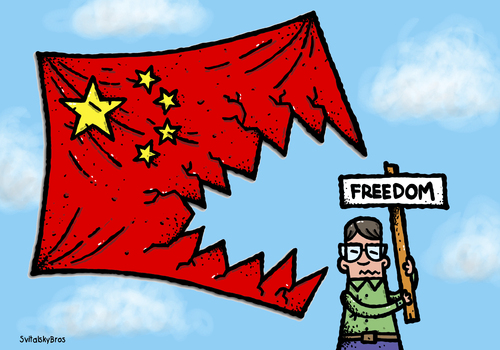 NEWS
NEWS
 NEWS
NEWS
 NEWS
NEWS
![]() China has never been the easiest place to surf the net anonymously, but now it’s become virtually impossible following the government’s most recent move to tighten its iron grip on web usage.
China has never been the easiest place to surf the net anonymously, but now it’s become virtually impossible following the government’s most recent move to tighten its iron grip on web usage.
Earlier today, the Standing Committee of the National People’s Congress announced its decision to approve a proposed “identity management policy”, requiring that all internet users register with their real names when signing up with a mobile carrier or online provider.
According to Li Fei, deputy director of the Commission for Legislative Affairs of the Standing Committee, the committee did take into account concerns raised by members of the public that the new rules could be detrimental to the exposure of corruption cases and the public’s ability to criticize the government online, reports Xinhua.
Numerous instances of corruption involving Chinese officials have been exposed online, and the fears are that the new rules would make it easier for authorities to track down anyone who posts such stories.
However, Mr. Li dismissed these concerns, saying that identity management would be done “backstage”, meaning that users could continue to post under pseudonyms on websites.
Unfortunately, the concerns don’t end there. Under the new regulations, Chinese service providers will now be compelled to remove any content posted online that the government deems to be “illegal”. In addition, service providers will also be required to turn over all information regarding illegal content to the government, which will then be able to track down and punish those responsible.
During its announcement, the committee also reminded citizens that they have a responsibility to report any illegal online information that they stumble across to the relevant authorities.
Xinhua’s report doesn’t explicitly state what kind of content could be considered ‘illegal’, but China’s government is known to take a dim view of anything perceived as criticism of the communist party or its leaders. In attention, it operates a zero-tolerance policy with regard to adult websites.
China goes as far as to paint the new regulations as being in the best interest of web users, claiming that they will “help to protect digital information and user’s privacy”. In line with this, the new rules also make it illegal for the government and service providers to provide user data to third parties, says Xinhua.
However, Li ended his statement with a thinly veiled warning, reports Reuters:
“When people exercise their rights, including the right to use the Internet, they must do so in accordance with the law and constitution, and not harm the legal rights of the state, society…or other citizens.”
THANK YOU